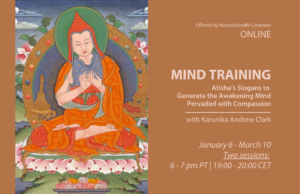I’ve been wondering why the Covid-19 pandemic feels so much harder after the first month of social distancing. As a grief counselor, I’ve observed that grief after a loss often feels much more intense after the first month following that loss. Pandemic-induced grief fits this pattern.
In the first month after a loss, the bereaved are busy making funeral arrangements, receiving visits from friends and family, and receiving telephone calls, sympathy cards and casseroles. There is also a lot of busyness with handling wills, death certificates, and the like.
Similarly, in the first month of sheltering-in-place, we were busy buying toilet paper, making disaster plans, finding or making face masks, figuring out how to stay connected via Zoom, and navigating grocery shopping.
After the first month following a death, the phone is quieter, the cards and casseroles have stopped coming and we are somehow expected to be back to “normal.” The bereaved are left to navigate this new land without their loved one. They wonder if they are handling their grief in the “right way”, and may be feeling anxiety in the face of not knowing what their new life in the “new normal” will look like.
Likewise, much of the doingness of the first month after social distancing is over. We’ve stocked up on toilet paper and grocery staples, and figured out how to stay in touch with our communities via Zoom. Like after a death loss, we are left with the question “now what?” We wonder when, and how, things will change in the post-pandemic “new normal.” We are fearful and anxious, with more questions than answers. It feels like a big void, where we are seeking ground in utter groundlessness.
Working with the Pain of Pandemic-Induced Grief
I imagine that most of us would prefer not to feel the pain of grief, fearing that it will overwhelm us. Nonetheless, working through the emotions of grief promotes healing and growth. Failing to do so may manifest itself as physical illness or substance abuse to numb the pain, or may result in depression or complicated grief.
Here are some tips for working through the pain of pandemic-induced grief:
- Take care of your body. Eat nourishing foods (with the occasional indulgence), limit caffeine and alcohol, and enjoy a soothing bath or shower. Exercise.
- Remember to breathe deep, diaphragmatic breaths.
- Allow yourself to cry (and drink lots of water as crying is dehydrating).
- Express your feelings through journaling, art or movement or by talking with others.
- Appreciate nature. Listen to the sound of a bird, notice the trees and flowers blooming this spring.
- If your feelings are overwhelming, speak to a trained grief counselor or psychotherapist.
In the words of author Stephen Levine, “tragedy holds the seeds of grace.” Through directly feeling the pain of own unique grief, we can tap into grief’s universality, lessening our hopelessness and isolation, and deepening our connection with others and our world.

Beth Patterson is a psychotherapist specializing in grief, loss and life transitions. In her work, Beth relies on Buddhist psychology, mindfulness based cognitive therapy and body-centered therapies. Her articles and ebook are available at www.bethspatterson.com. Beth is a longtime Buddhist practitioner and a student of Dzogchen Ponlop Rinpoche.






